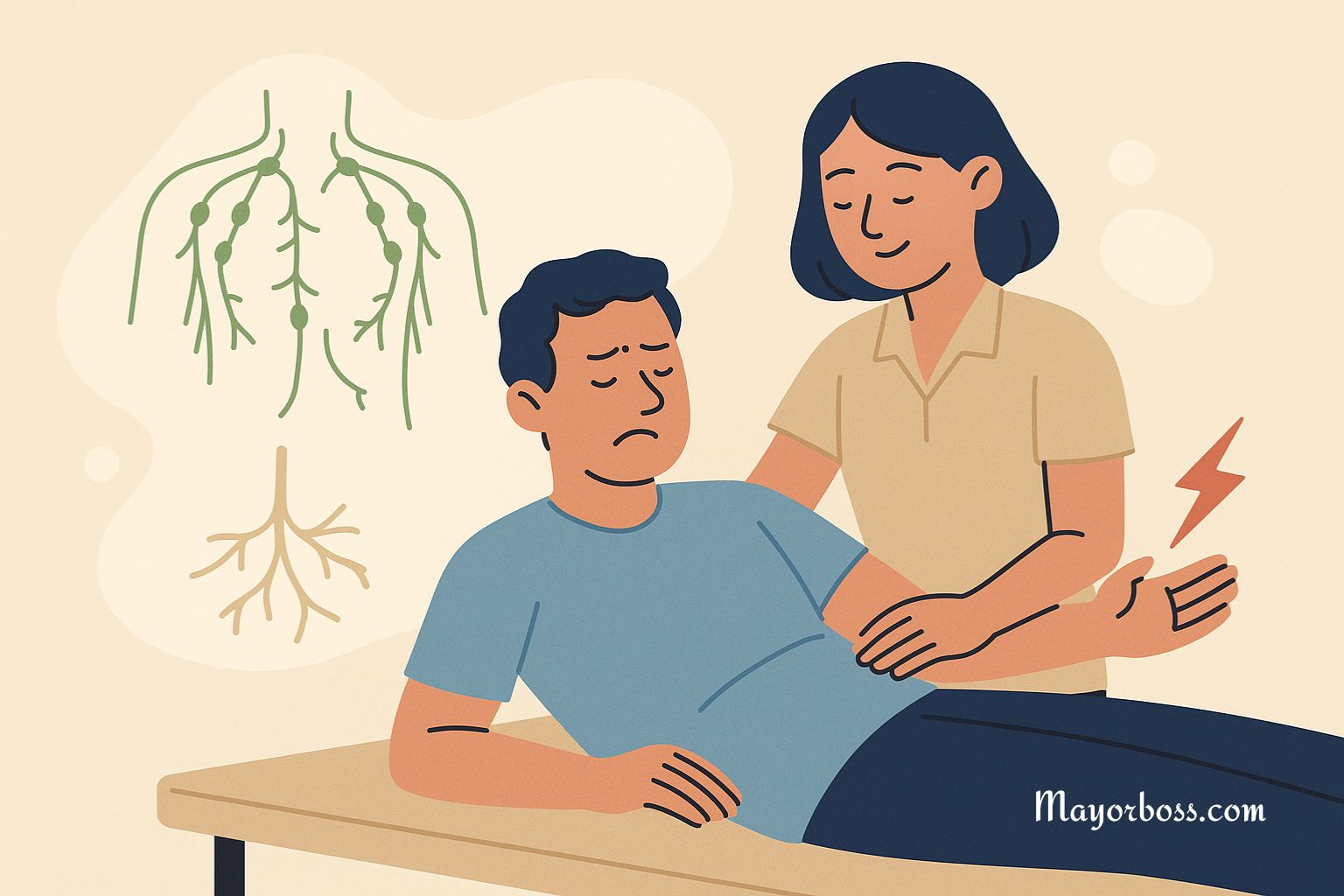Why Is My Lower Stomach Sensitive to Touch?
Feeling sensitivity or pain in your lower stomach when it’s touched can be both uncomfortable and worrying. You might notice this sensitivity suddenly or perhaps it’s been developing gradually. Either way, it’s a signal from your body that something isn’t quite right. Below, we’ll go over some common reasons for this sensitivity and offer guidance on when you might need to seek medical attention.

Common Causes of Lower Stomach Sensitivity
1. Digestive Issues
Problems in your digestive system are often behind the sensitivity in your lower stomach. Conditions like gas, bloating, constipation, or even irritable bowel syndrome (IBS) can make your abdomen feel tender to touch. Foods that your body struggles to digest can lead to increased gas production and bloating, adding pressure to your stomach and making it feel sensitive.
2. Urinary Tract Infections (UTIs)
A UTI can cause your lower abdomen to feel tender and sensitive, especially when pressure is applied. Alongside sensitivity, you might experience other symptoms, such as a burning sensation when urinating, an increased frequency of urination, or cloudy urine. UTIs require treatment with antibiotics, so if you suspect you have one, it’s important to see a doctor.
3. Hernia
If you have a hernia in the abdominal area, it might cause sensitivity or pain in your lower stomach. You might also notice a lump or bulge that becomes more apparent when you’re standing up, coughing, or straining.
4. Gynecological Conditions
For women, various gynecological issues can lead to lower stomach sensitivity. Conditions such as ovarian cysts, endometriosis, or pelvic inflammatory disease (PID) can cause discomfort and tenderness in the lower abdomen. These conditions often come with other symptoms like irregular periods, painful menstruation, or pain during intercourse.
5. Appendicitis
Although appendicitis typically causes pain in the lower right side of the abdomen, it can start with general abdominal discomfort that includes sensitivity to touch. Appendicitis is considered a medical emergency. If the pain in your lower abdomen is severe and accompanied by fever, nausea, and vomiting, you should seek medical help immediately.
When to See a Doctor
It’s wise to pay attention to your body and seek medical advice if:
- The sensitivity is severe or getting worse.
- You experience other symptoms, such as fever, vomiting, difficulty urinating, or changes in bowel movements.
- The sensitivity persists for several days without any improvement.
Your healthcare provider can perform a physical examination, ask about your symptoms, and possibly recommend tests like blood work, urine analysis, or imaging studies to determine the cause of your discomfort.
Conclusion
Sensitivity in the lower stomach can stem from a variety of causes, ranging from minor digestive discomfort to more serious conditions like appendicitis or gynecological issues. While occasional, mild sensitivity might not be a cause for alarm, it’s crucial to monitor your symptoms and consult a healthcare professional if you’re concerned. They can help diagnose the issue and recommend the appropriate treatment to relieve your discomfort.
Frequently Asked Questions
- Can stress cause my lower stomach to be sensitive to touch? Yes, stress can impact your digestive system and lead to symptoms like gas, bloating, and sensitivity due to the body’s response to stress hormones.
- How can I relieve mild lower stomach sensitivity at home? For mild cases, resting, staying hydrated, and using over-the-counter pain relievers can help. Warm compresses may also relieve discomfort, but it’s important to consult a doctor if symptoms persist.
- Is it normal for sensitivity to come and go? Yes, the sensitivity can fluctuate based on underlying causes, such as dietary choices that affect digestion or menstrual cycles in women. However, consistently recurring or worsening sensitivity should be evaluated by a doctor.






